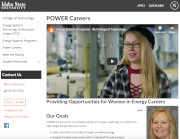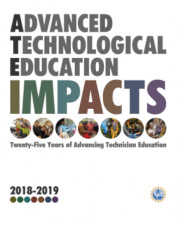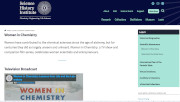
Providing Opportunities for Women in Energy Related (POWER) Careers
isu.edu/estec/power-careers
The over-arching mission of Providing Opportunities for Women in Energy Related (POWER) Careers is to help women achieve equity in STEM-related technical career fields. POWER Careers will increase enrollment and completion of women in STEM two-year degree programs that lead to energy industry careers. This pilot project is designed to evoke transformational change in the way that women are recruited to and retained in energy systems programs. Education and industry have not been successful in obtaining equitable participation of females in historically male-dominated technical fields. POWER Careers addresses the need to increase female participation, with a focus on non-traditional college-aged women (ages 25+) who need or want to begin a new career. Entry-level energy technician jobs offer attractive salaries, excellent benefits, and career paths with promise and opportunity.
POWER Careers implements focused strategies aimed at increasing the successful participation of women in high quality, proven Associate of Applied Science (AAS) programs within the Energy Systems Technology and Education Center (ESTEC) at Idaho State University (ISU) College of Technology. These strategies will retain women students through graduation and placement in professional positions. The project is important because it can help participants make dramatic moves into higher paying STEM-related careers. It will employ a system of supports and activities that form a continuum across the student experience. For ESTEC, the best and most powerful voices to recruit students are those of successful female students and graduates. POWER Careers will serve as a pilot project to help identify and address the challenges of recruiting age-diverse women in a rural area, in part by working closely with program graduates who will be role models and mentors, and with community-based agencies that are in contact with potential adult students. The project engages industry in efforts to build a more diverse workforce and create workplace environments that are welcoming to female technicians. Efforts to recruit women will include those from underrepresented populations - Latinas, Native Americans, and military veterans.







